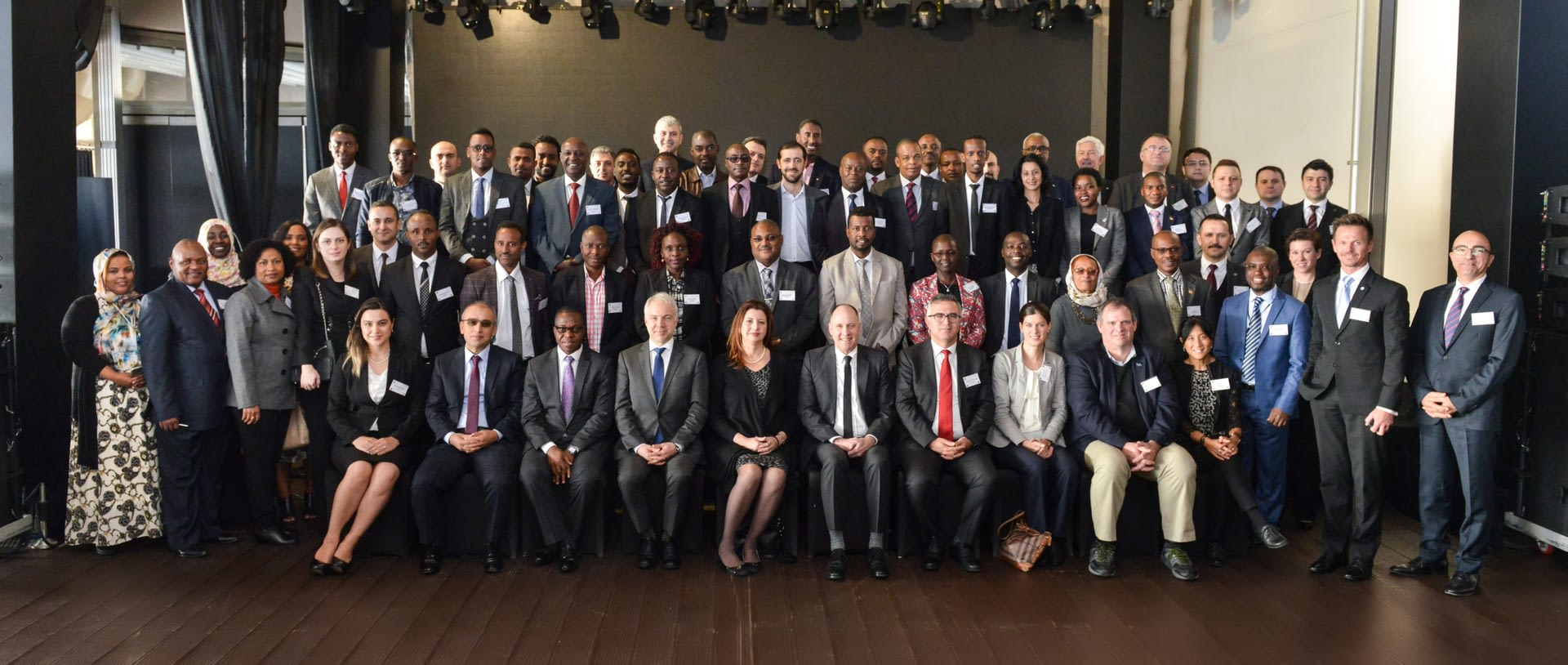
In December 2019, the IIJ convened an East Africa Regional Workshop on Evidence in Istanbul, with support from the Governments of Switzerland and Türkiye. The workshop was held under the auspices of the IIJ Judicial Capacity-Building Initiative; one of eight IIJ Core Initiatives, and implemented with the assistance of the Turkish Justice Academy (Adalet Akademisi) based in Ankara.

The workshop brought together more than 60 practitioners from across East Africa, including from Djibouti, Ethiopia, Kenya, Mozambique, Somalia, Sudan, Tanzania, and Uganda, as well as from the Netherlands, Nigeria, Switzerland, Türkiye and the United States. They were joined by representatives from several international partner organisations. including the United Nations Counter-Terrorism Committee Executive Directorate (CTED), United Nations Office on Drugs and Crime (UNODC), and the IIJ's Valletta Partner, the International Centre for Counter-Terrorism – The Hague (ICCT).
The workshop was opened by Her Excellency, Ambassador Aylin Tashan, IIJ board member and Director of General Research and Security Affairs within the Turkish Ministry of Foreign Affairs, Mr. Tiziano Balmelli, Deputy Head of Mission at the Swiss Embassy in Ankara, Mr. Muhittin Ozdemir, Director of the Turkish Justice Academy, Rear Admiral Yaminu Musa, Coordinator at the Nigerian Counterterrorism Centre Office of the National Security Adviser, and Mr. Thomas Wuchte, IIJ Executive Secretary.

The East Africa Regional Workshop focused on implementing the GCTF's Abuja Recommendations on the Collection, Use, and Sharing of Evidence for Purposes of Criminal Prosecution of Terrorism Suspects. This important collection of internationally-recognised recommendations, endorsed by GCTF Ministers in September 2018, offers practical guidance to investigators and prosecutors of terrorism cases on how to build solid cases based on strong and admissible evidence.

Participating in the workshop were judges, prosecutors, investigators and judicial police officers who deal with forensic science in their course of their investigations and prosecutions, and military officers who work on terrorism cases. This diversity of practitioners generated dynamic discussions on the challenges and opportunities when gathering, storing and using forensic evidence, electronic evidence, and witness testimony in terrorism investigations and prosecutions. The participants also worked through a multi-phased fact pattern exercise in break-out groups, identifying effective solutions to evidentiary challenges they face in such cases and opportunities to cooperate regionally and internationally – a central tenent of the Abuja Recommendations and the work of the IIJ. Furthermore, a small group, consisting of one member from each delegation, was invited by the prosecutors of Istanbul to visit the Caglayan Courthouse, where they were able to tour the courthouse and see its multiple courtrooms and facilities.

For more information on this workshop, please contact Junior Programme Manager Gabriel Monterrosa.
